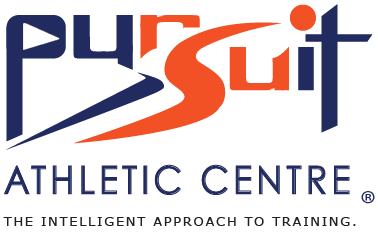THE CREATINE CRAZE
By Kristine
Deemed one of the safest supplements, creatine can be beneficial for more than just performance. Over the past few years, the potential therapeutic role of creatine supplementation has been investigated in regard to diabetes, muscle loss, bone loss, cancer, cognition rehabilitation and cardiovascular health. If you’re curious about creatine and whether it’s a supplement you should use…keep reading!
WHAT IS CREATINE?
Creatine (Cr) is a naturally occurring compound that plays a crucial role in energy supply for skeletal, cardiac, smooth muscle, as well as the brain. In its activated form, known as creatine phosphate (PCr), it provides an immediate energy source for the brain and muscles.
During exercise Adenosine Triphosphate (ATP) molecules are broken down and although the body can produce more ATP from fuel sources like carbohydrate and fat, these are relatively slow processes. Phosphocreatine provides a quick pool of energy to rapidly restore ATP, and therefore fuel for high intensity exercise. Creatine only exists in small amounts in the body, enough to fuel around 10 seconds of high intensity activity.
HOW DOES CREATINE WORK?
To explain how creatine works, we need to talk about our body’s energy systems. The most basic form of energy in cells is a molecule called adenosine triphosphate (ATP). This is what we call our “energy currency” as it is used to perform many of our body’s functions.
About 95% of the body's creatine is stored in the muscles in the form of a molecule called creatine phosphate. During short bursts of exercise, our body uses the creatine phosphate system to replenish ATP (as shown in the diagram below). The goal of creatine supplementation is to increase resting phosphocreatine levels in muscles. By doing so, we can replenish our ATP to resist fatigue.
Source: Human Kinetics Canada
WHAT ARE THE BENEFITS OF CREATINE?
PERFORMANCE BENEFITS: Creatine’s benefits include increasing short, high-intensity exercise capacity & decreasing protein breakdown, leading to increased lean body mass and physical performance. Research has also shown that creatine supplementation increases maximal strength (low-speed strength), maximal work output, power production (high-speed strength), sprint performance, and fat-free mass. Creatine isn’t just for athletes. It can also support general fitness and help us maintain muscle mass as we age. Additionally, if you are trying to lose weight, it may be an effective way to preserve muscle while dieting.
THERAPEUTIC BENEFITS: The benefits of creatine go beyond athletic performance. Research has clearly shown several health and/or potential therapeutic benefits as well. Creatine supplementation has been shown to:
Support healthy blood sugar management
Support brain function, especially as we age
Support heart health
Support a healthy immune system
Provide protective properties for those with neurodegenerative diseases
Enhance energy availability during events where blood flow is restricted (I.e. Concussion)
Overall, creatine supplementation can improve your performance in the gym AND your health!
OKAY..NOW I’M INTERESTED. BUT, HOW MUCH CREATINE SHOULD I TAKE?
You may have heard that you need to do a “loading phase” when you first start taking creatine. That is false! If you consume over 5g a day, your body will excrete the excess amount in your urine.
Research shows that taking 5g of creatine once a day is enough to reap the benefits!
If you’re still unsure if creatine is for you, feel free to ask one of us at Pursuit during your next class or appointment.
Sources:
Butts J, Jacobs B, Silvis M. Creatine Use in Sports. Sports Health. 2018 Jan/Feb;10(1):31-34. doi: 10.1177/1941738117737248. Epub 2017 Oct 23. PMID: 29059531; PMCID: PMC5753968.
Clarke H, Kim DH, Meza CA, Ormsbee MJ, Hickner RC. The Evolving Applications of Creatine Supplementation: Could Creatine Improve Vascular Health? Nutrients. 2020 Sep 16;12(9):2834. doi: 10.3390/nu12092834. PMID: 32947909; PMCID: PMC7551337.
Kreider RB, Stout JR. Creatine in Health and Disease. Nutrients. 2021 Jan 29;13(2):447. doi: 10.3390/nu13020447. PMID: 33572884; PMCID: PMC7910963.
Wax B, Kerksick CM, Jagim AR, Mayo JJ, Lyons BC, Kreider RB. Creatine for Exercise and Sports Performance, with Recovery Considerations for Healthy Populations. Nutrients. 2021 Jun 2;13(6):1915. doi: 10.3390/nu13061915. PMID: 34199588; PMCID: PMC8228369.


